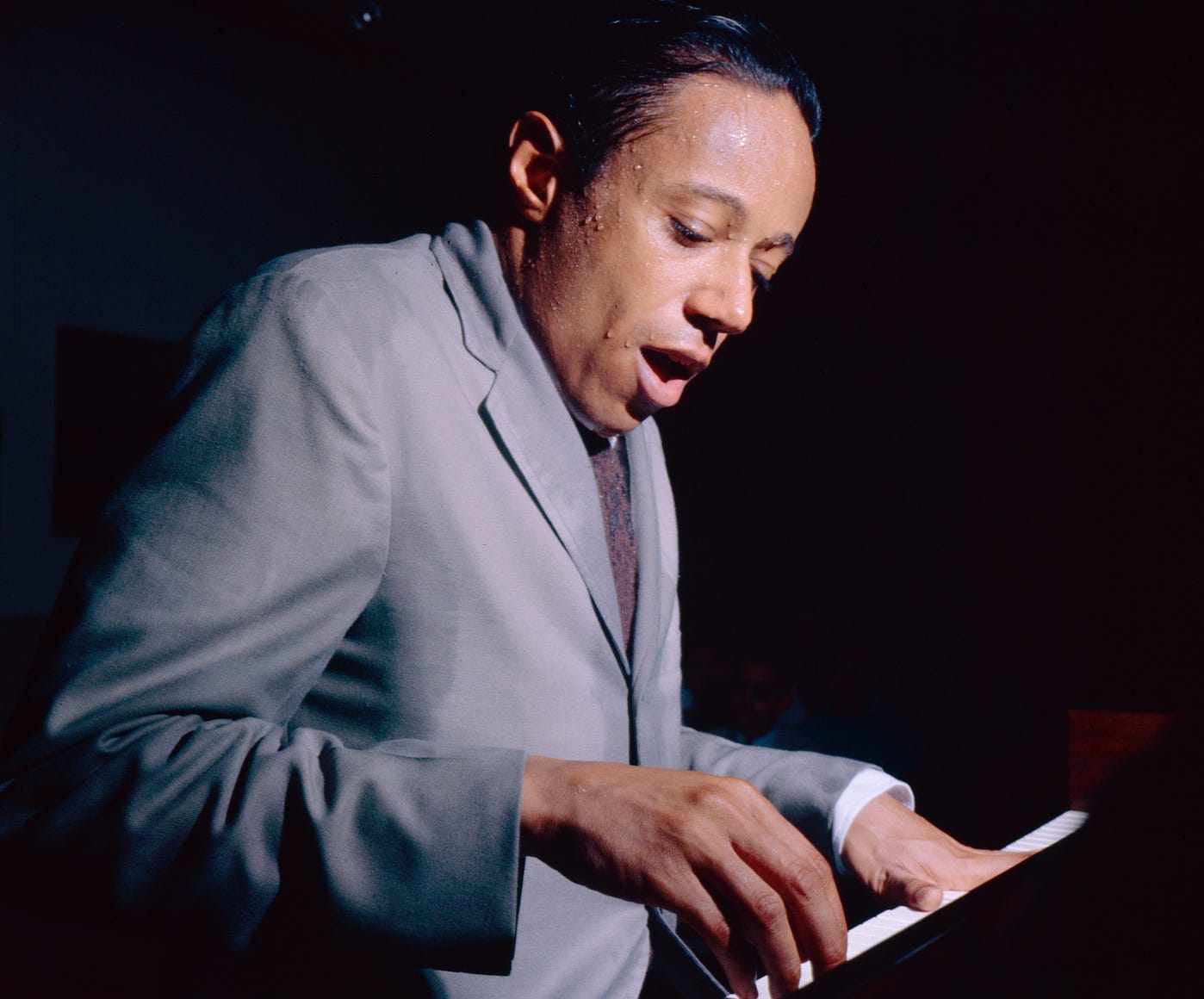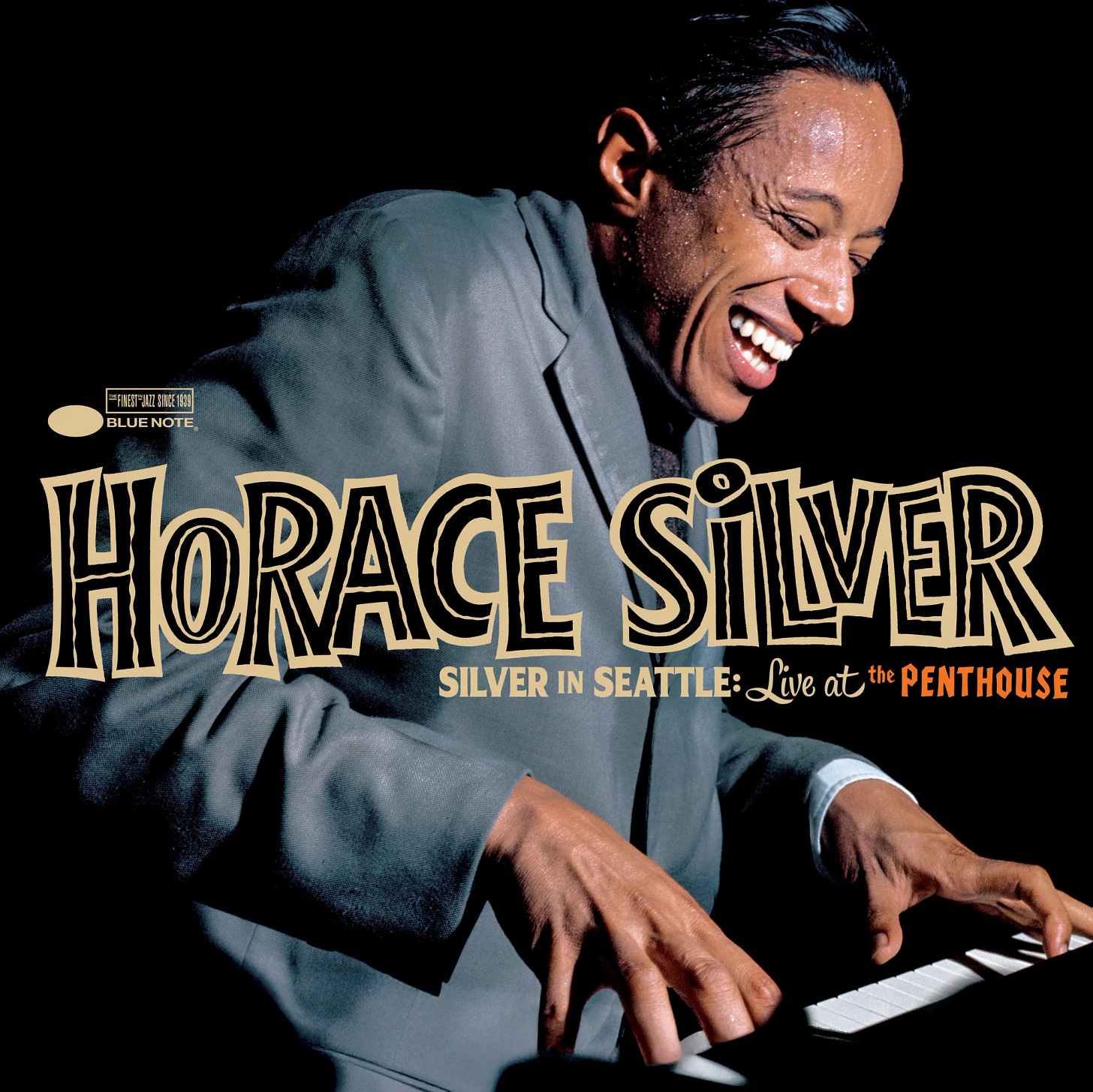Shortly after pianist Horace Silver released Song for My Father in January 1965, he headed out on tour with his quintet to promote the masterpiece LP. The album had turned Silver into something of a sensation. [Photo above of Horace Silver by Francis Wolff ©Mosaic Images]
The album peaked at No. 95 in July 1965 on the Billboard 200, and the title song over the decades has become his best-known track. So much so, that Steely Dan’s Donald Fagen used it to open Rikki Don’t Lose That Number on the band’s Pretzel Logic album in 1974.
Opening with a funky bass-line riff and soul-jazz piano groove, Silver’s intro was moody and mysterious, and caught the ears of black and white young-adult jazz listeners in 1965. Many had been to jazz festivals and concerts and were looking for a hip alternative to the emerging free-jazz and pop scenes.
One of Silver’s stops on his national album tour was at Seattle’s Penthouse jazz club. Ironically, the Penthouse was located on the ground floor of the Kenneth Hotel at 701 First Avenue, near the corner of Cherry Street, in the city’s Pioneer Square neighborhood.
Fortunately for us, Jim Wilke hosted Thursday-night broadcasts from the club for KING radio and preserved the tapes. Broadcast recordings from his show have been emerging recently with greater regularity, thanks to a strong working relationship between producer Zev Feldman and Wilke.
The latest is Horace Silver: Silver in Seattle - Live at the Penthouse, released by Blue Note on Friday. The fidelity of the never-before released material—on the LP, CD and digital download and stream versions—is clear, shrewdly mixed and dimensional.
Transferred from the original tapes recorded by Wilke and mastered by Matthew Lutthans at the Mastering Lab, the broadcast-quality recording feels intimate and woolly. Recorded on August 12 and 19 of 1965, the nights when Wilke broadcast from the club, the towering quintet is able to simmer with tenderness and roar with thrashing abandon.
Without the constraints of the studio clock and multiple takes, you have this Horace Silver Quintet in the raw here and at its peak.
The group is exceptional: Woody Shaw (tp), Joe Henderson (ts), Horace Silver (p), Teddy Smith (b) and Roger Humphries (d). Interestingly, the song choices are from multiple albums already released and one that wouldn’t be recorded for two months.
The tracks (and studio albums on which they appear):
The Kicker (Song for My Father), by Joe Henderson
Song for My Father (same album), by Horace Silver
The Cape Verdean Blues (recorded two months later in October), by Silver
Sayonara Blues (The Tokyo Blues/1962), by Silver
Band introductions
No Smokin’ (The Stylings of Silver/1957), by Silver
There is no high point on this new release. All of the tracks are hypnotizing, with shifting tempos, provocative polyrhythms, Silver’s percussive funk and two of the greatest frontline horns of the period—Shaw and Henderson.
The contrast is fabulous. Shaw’s blistering attack is smoothly offset by Henderson’s smokiness and sensuality. One of the best live hard-bop releases of the year.
To buy, go here.
Here’s No Smokin’…
Here’s The Kicker…
And here’s Steely Dan’s Rikki Don’t Lose That Number…




I agree with you, Marc. This release is one of the best live hard-bop recordings of the year. And what a coincidence... I ordered the CD version a few days ago and it was in my mailbox today. And when I opened JazzWax this morning, your Horace Silver post began my day.
For everyone here at JazzWax who´s interested in Horace Silver, there´s is a complete concert clip from the Northsea Jazz Festival in the Netherlands from 1994 with his Silver Brass Ensemble.
https://youtu.be/JfFT8ymPFbo?si=xJ5KGgV42GeAuz9_